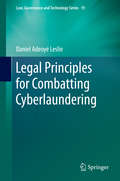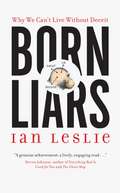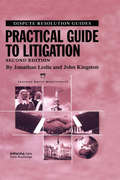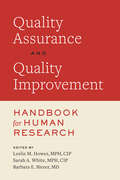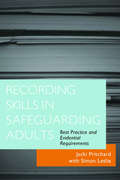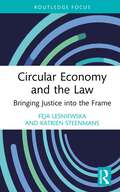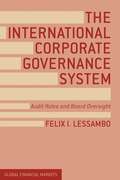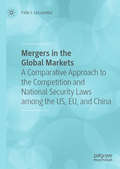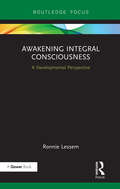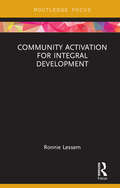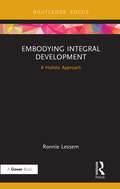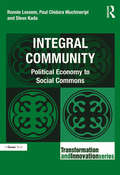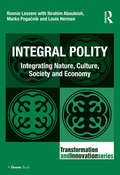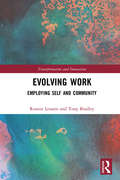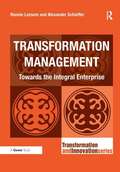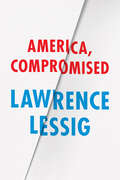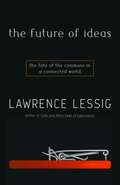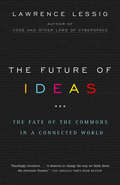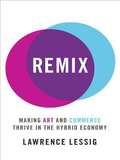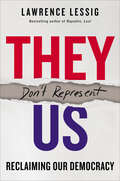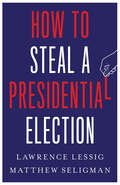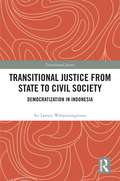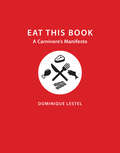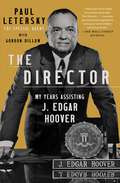- Table View
- List View
Legal Principles for Combatting Cyberlaundering
by Daniel Adeoyé LeslieThis volume deals with the very novel issue of cyber laundering. The book investigates the problem of cyber laundering legally and sets out why it is of a grave legal concern locally and internationally. The book looks at the current state of laws and how they do not fully come to grips with the problem. As a growing practice in these modern times, and manifesting through technological innovations, cyber laundering is the birth child of money laundering and cybercrime. It concerns how the internet is used for 'washing' illicit proceeds of crime. In addition to exploring the meaning and ambits of the problem with concrete real-life examples, more importantly, a substantial part of the work innovates ways in which the dilemma can be curbed legally. This volume delves into a very grey area of law, daring a yet unthreaded territory and scouring undiscovered paths where money laundering, cybercrime, information technology and international law converge. In addition to unearthing such complexity, the hallmark of this book is in the innovative solutions and dynamic remedies it postulates.
Born Liars: Why We Can't Live Without Deceit
by Ian LeslieLying is an intrinsic part of our social fabric, but it is also a deeply problematic and misunderstood aspect of what makes us human. Ian Leslie takes us on a fascinating journey that makes us question not only our own relationship to the truth, but also virtually every daily encounter we have. On the way he dissects the history of the lie detector, how parents affect their children’s attitude to lying (and vice versa), Who Wants to Be a Millionaire?, the philosophical ambiguity of telling the truth, Bill Clinton’s presentational prowess, Wonder Woman’s lasso of truth, and why we should be wary of anyone with more than 150 Facebook friends. Born Liars is thought-provoking, anecdotally driven narrative nonfiction at its best. Ian Leslie’s intoxicating blend of anthropology, biology, cultural history, philosophy, and popular psychology belies a serious central message: that humans have evolved and thrived in large part because of their ability to deceive.
Practical Guide to Litigation
by Jonathan Leslie John KingstonAgainst the background of Lord Woolf's interim report "Access to Justice", this text includes accounts of tactical matters and practical litigation "tips", as well as descriptions of the procedures involved. Litigation is often conducted by companies who do not have much practical experience of the processes that might be expected of them. The same applies to others who become involved in litigation without actually having to conduct the procudure as lawyers. This book is intended to give a brief, clear and comprehensive overview of litigation, arbitration and ADR in England. Intended as a comprehensive overview of litigation, arbitration and ADR in England, this guide is aimed at clients and firms who are involved in, or assist cases, who would like to understand the process better in a non-technical way but do not want to see every statement supported by authority.
Quality Assurance and Quality Improvement Handbook for Human Research
by Leslie M. Howes, Sarah A. WhiteHelping human research protection program professionals create, implement, and evaluate quality assurance/quality improvement programs.Quality Assurance and Quality Improvement Handbook for Human Research is the first comprehensively designed instructional manual aimed at teaching human research protection program (HRPP) professionals how to create, implement, evaluate, and improve QA/QI programs. Geared toward institutions and individuals responsible for establishing new QA/QI programs or functions, the book offers several organizational models for consideration. It also provides practical information for improving and strengthening established programs, both big and small.Written in a conversational style, the book's step-by-step instructions make it easily accessible to those who may not be well versed in QA/QI concepts and fundamentals. Developed by the QA/QI Subcommittee of the Harvard Catalyst Regulatory Foundations, Ethics, and Law Program, which is committed to designing and strengthening QA/QI programs and functions, this volume• includes contributions by fifteen experts with diverse professional experiences from varied organizations • is enhanced with flow charts, examples, sample forms, and templates• incorporates model slide presentations and instructional materials• discusses the respective benefits and challenges of different organizational models• is applicable across many organizational types with a variety of reporting structures and available resources, including academic and medical institutionsPerfect for both seasoned personnel and newcomers to the field, Quality Assurance and Quality Improvement Handbook for Human Research is a needed resource for ensuring investigative accountability.Contributors: Hila Bernstein, MS, MPH, Barbara E. Bierer, MD, Elizabeth Bowie, JD, MPH, MSc, Susan Corl, MSW, MPH, CIP, CCRP, Jacquelyn-My Do, MPH, Lisa Gabel, CIP, Alyssa Gateman, MPH, CCRP, Jennifer A. Graf, Nareg D. Grigorian, Leslie M. Howes, MPH, CIP, Jennifer Hutchinson, CIP, CPIA, Cynthia Monahan, MBA, CIP, Eunice Newbert, MPH, Sarah A. White, MPH, CIP, Elizabeth Witte, MFA
Recording Skills in Safeguarding Adults
by Simon Leslie Jacki PritchardRecording Skills in Safeguarding Adults is the comprehensive guide to keeping accurate, effective and complete records in safeguarding adults work. This book explains why good record-keeping is essential: it covers crucial skills in recording, including how to write effectively; evidential requirements when writing statements and reports for court; and minute-taking. The book includes best practice points, exercises and examples of good recording. Each chapter also features informative, anecdotal experiences and comments from experts in safeguarding adults work, including police and lawyers, on what is needed in written records and how to present evidence clearly and persuasively. This book is essential reading for all safeguarding adults practitioners who are required to keep records, including social workers, probation officers, nurses, support workers, residential and day care staff, volunteers and advocates.
Circular Economy and the Law: Bringing Justice into the Frame (Routledge Focus on Environment and Sustainability)
by Feja Lesniewska Katrien SteenmansThis book explores the role of law and policy in circular economy transitions and their impacts on justice, including on distributional equity and recognition and procedural rights, especially for people already marginalised under the current dominant economic system. Amid increasing demand for virgin raw materials, and unsustainable consumption and waste disposal that are driving the global ecological and climate crisis, there are growing calls to urgently transition to circular economies. Despite an increasing number of circular approaches being adopted, implemented, and integrated in national and local laws and policies, the number of commercially successful business stories remains isolated. Moreover, questions about whether circular economy laws and policies are delivering fair and just global outcomes need to be addressed. This book examines this significant knowledge gap to understand legal experiences, including justice and equity issues in the global context, so that these can inform wider design and implementation. The book begins by explaining the concept of a circular economy and its context within wider issues of sustainable development and justice. The first part of the book then examines the legal context of the circular economy by analysing legal forms in practice and those recommended in wider scholarship before considering how these could impact on existing inequity and injustices globally. The second part delivers an empirical understanding of the implications of the law on circular economy approaches and the global equity and justice dimensions through two case studies on solid waste management and forestry. The final part addresses legal opportunities and challenges for wider implementation of circular economy approaches that incorporate justice into its framing. This book will be of great interest to students, scholars, and practitioners of environmental and natural resource law and policy, circular economy, industrial ecology, natural resource management, and sustainable development more broadly.
The International Corporate Governance System
by Felix I. LessamboThis book provides a comprehensive approach to Corporate Governance, Audit Process and Risk Management. Furthermore, it provides an analytical and comprehensive approach of the issues facing governance directors, internal and external auditors, risk managers, and public officials conducting assessments based upon the Report on Standards and Codes.
Mergers in the Global Markets: A Comparative Approach to the Competition and National Security Laws among the US, EU, and China
by Felix I. LessamboInternational mergers and acquisitions play a vital role behind the growth of a company. This book explores the hurdles involved and how to navigate through the review processes set up by national regulatory agencies such as the US Committee on Foreign Investment (CFIUS), the EU Commission, and the Anti-Monopoly Bureau of State Administration of Market Regulation of China (AMB). This book is unique and showcases how to anticipate, develop, and implement successful strategies to support mergers and acquisitions activities, particularly of interest to finance and law students, researchers, and academics.
Awakening Integral Consciousness: A Developmental Perspective (Transformation and Innovation)
by Ronnie LessemThis is the second of four volumes in the CARE-ing for Integral Development series, focused on CARE: Community activation, Awakening consciousness, innovation driven institutionalized Research and transformative Education. In this book, the author focuses on ways and means of developing, in an explicitly integral way, a particular organization or society, one in relation to another, locally-globally, building on prior, local community activation. He draws on two decades of experience and illustrates how such an awakening of integral consciousness can run alongside innovation driven institutionalized research and transformative education, as well as community activation, at undergraduate and post-graduate levels. In the process he addresses such topics as how to embed development in a particular society locally, how in relation to the rest of the world globally, as well as how to consciously evolve as an individual, organization or society, as such, from one particular developmental perspective – southern (relational), eastern (renewal) or north/western (reasoned/realization) – or another. The overall integral approach, or rhythm that the author draws upon, and has used in the field for the past decade, is that of recognizing and releasing what he terms GENE-ius, through local Grounding, local-global Emergence, newly global Navigation and ultimately global-local Effect, encompassing nature, culture, technology and enterprise. Moreover, he offers a body of integral theory that has been developed in twelve separate volumes, related to different aspects of integral development. This book on awakening integral and developmental consciousness – from an African, Asian or Euro/American perspective – is unique. Moreover, and specifically as such, the author offers an alternately relational ("southern"), renewal ("eastern") and reasoned ("north-western") perspective on such development.
Community Activation for Integral Development (Transformation and Innovation)
by Ronnie LessemAs mass global and social media communications spread across the globe, we are seeing a need for a change in the way we approach issues of political and economic development. The effects of these growing communications are that, on the one hand, we see the significance of place rising, while on the other, marginalized people clamour to be heard and identities become increasingly threatened. We are quickly realizing that a ‘one-size fits all’ approach is not going to work. Despite more than half a century of attempts to address issues of development, we have seen fairly bleak results. In fact, the rising of economic stars, such as Japan and the Pacific Tigers hitherto, and China and India of late, have little to do with such programs of development or cultural studies, notwithstanding their accomplishment. Typically, such successes have developed top-down, with theories born and bred in the ‘West’ affecting,or maligning, practices in the ‘rest’. The approach taken in this book looks at these developments by turning them on their head: instead, starting bottom-up with an emphasis on what the author terms ‘community activation’. With a selection of case studies, this volume looks at where community activation can be found and explores how it could evolve and be of use in developing societies at large. In the process, he addresses such topics as how to embed development in a particular society, how to generate social and economic solidarity, and how to generate wealth from pre-industrial and post-industrial networks. This book provides a guide for readers on how to build community within their organization-and-society from the ground up.
Embodying Integral Development: A Holistic Approach (Transformation and Innovation)
by Ronnie LessemIn this fourth and final volume of the CARE-ing for Integral Development series, Ronnie Lessem integrates all that has come before in terms of: Community activation; Awakening integral consciousness; and institutionalized Research. Here he focuses on individual and community development alongside that of the organization or society, and sets it in the context of an integral economy. The four critical success factors identified in recognizing and releasing integral development aligned with CARE are: GROUNDING – linking up with and building upon existing local and global movements for socio-economic development; EMERGENCE – maintaining interconnected focus; NAVIGATING – locating and developing GENE-ius in a particular community/society; EFFECTING – committing to resolving an issue and identifying the most fertile development path. Embodying Integral Development offers a comprehensive system of accreditation. Supported by examples and illustrations of CARE, this book makes a case for Integral Development as a whole. It argues that it is a qualitative means of self-assessment rather than a quantitative one, focused on engagement, immersion and interpretation, as well as evaluation, rather than empirical verification.
Integral Community: Political Economy to Social Commons (Transformation and Innovation)
by Ronnie LessemIntegral Community moves the transformation journey for enterprises and society on from the stages covered in earlier books in Gower's Transformation and Innovation Series, which describe a new macro-economic framework and which have examined alternative development with different local communities, bringing wide cultural perspectives to practical implementation of authentic or integral development. Here, the authors argue that there are two major fields of force prevailing in today's world. The one reflects our common heritage, whereby East and West, North and South are coming ever closer together - the global commons. The other reflects local and national singularity, where the notion of feeding off ancient local heritage and talent is key. They also identify four different culturally laden worldviews as Southern - humanistic, Eastern - holistic, Northern - rational, and Western - pragmatic. The enterprise and social innovation in Africa with which Lessem's co-authors are involved provides an object lesson in the sort of differentiation and integration needed in order to operate, socio-economically, with local identity and global integrity. It provides in this case a 'Southern' worldview background against which to examine communally based self-sufficiency; culturally based developmental economy; knowledge based social economy; and finally, the move towards what the authors describe as a living economy. All illustrated through a rural case, Chinyika, with which they have been intimately involved, whereby 100,000 have become self sufficient over the past five years. Integral Community should be read by academics and students of business, economics, development studies and agriculture, and by policy makers, particularly those concerned with the developing world in general and Africa in particular.
Integral Polity: Integrating Nature, Culture, Society and Economy (Transformation and Innovation)
by Ronnie Lessem Ibrahim Abouleish Louis HermanReleasing the genius of an individual, an enterprise and a society is a central pre-occupation of the contemporary business environment. A fascinating approach to how we can begin to tackle this challenge is presented by the authors of Integral Polity. Integral spirituality, integral philosophy and the integral age, at an overall or holistic level of consciousness, has therefore become a strong enough idea to form the genesis of a movement over the course of the last half century. Taking as a starting point the ground-breaking work of the Trans4m Centre for Integral Development this book applies such an ’integral’ notion to the realms of business, economics and enterprise. To be successful, an integral approach must recognise the nuances of its environment - an integral approach in India is different from that in Indonesia, or Iceland, and they may in fact complement rather than conflict. Therefore this book also provides a fascinating alignment of such ’integrality’ with, and between different ’southern’ and ’eastern’, ’northern’ and ’western’ worlds. Using case studies ranging across the globe this review of a newly integral theory and practice provides a new lease of life to what may increasingly be perceived as the self-seeking, insulated and occasionally violent and corrupt, realm of the political.
Evolving Work: Employing Self and Community (Transformation and Innovation)
by Ronnie Lessem Tony BradleyThe idea of Self and the authenticity of particular identities have been rapidly dissolving in the acids of post-modern globalising capitalism. The hegemony of patterns of work, wage-labor and the operation of labour markets in the American West (and European North) has ridden rough-shod over distinctive ways of enabling communities to flourish in many parts of the Southern and Eastern worlds (Global South). But, this is not inevitable. Indeed, as this book indicates, there are many practical examples across the globe – that connect with some of the most significant theoretical challenges to the operation of dehumanising work – which reveal that a profound reversal is taking place. As such, the core theme of this book is to show that a movement is occurring whereby self-employment can be transformed into communal work that employs the Self in ways that release the authentic vocations of people, individually and collectively. The approach taken in these chapters traverses the globe, utilising the original ‘integral worlds’ model that will be familiar to students of the Trans4M/Routledge Transformation and Innovation series, developed over more than a decade. Such a standpoint points the way to the release of particular social and economic cultures in each of what we term the four "realities" or "worldviews" of South, East, North and Western worlds. In this book we use the methodology of GENEalogy – identifying the realms associated with each world – to show how the rhythms, that is Grounding, Emergence, Navigation and Effect, of each is leading to greater economic, social and spiritual freedom for individuals, organisations, communities and, indeed, entire societies.
Transformation Management: Towards The Integral Enterprise
by Ronnie Lessem Alexander SchiefferTransformation management, argue the authors of this inspirational book, now provides the opportunity for the application of the first significant world-wide innovation in the way we manage since Drucker put management itself on the map in the 1950s. In a book that draws on seminal theses and practical examples from the four corners of the world, Ronnie Lessem and Alexander Schieffer provide leaders, students of leadership, managers and change agents with a trans-culturally tested, integrated approach to leadership and management.
America, Compromised: Five Studies In Institutional Corruption (Berlin Family Lectures)
by Lawrence Lessig“There is not a single American awake to the world who is comfortable with the way things are.” So begins Lawrence Lessig's sweeping indictment of contemporary American institutions and the corruption that besets them. We can all see it—from the selling of Congress to special interests to the corporate capture of the academy. Something is wrong. It’s getting worse. And it’s our fault. What Lessig shows, brilliantly and persuasively, is that we can’t blame the problems of contemporary American life on bad people, as our discourse all too often tends to do. Rather, he explains, “We have allowed core institutions of America’s economic, social, and political life to become corrupted. Not by evil souls, but by good souls. Not through crime, but through compromise.” Every one of us, every day, making the modest compromises that seem necessary to keep moving along, is contributing to the rot at the core of American civic life. Through case studies of Congress, finance, the academy, the media, and the law, Lessig shows how institutions are drawn away from higher purposes and toward money, power, quick rewards—the first steps to corruption. Lessig knows that a charge so broad should not be levied lightly, and that our instinct will be to resist it. So he brings copious, damning detail gleaned from years of research, building a case that is all but incontrovertible: America is on the wrong path. If we don’t acknowledge our own part in that, and act now to change it, we will hand our children a less perfect union than we were given. It will be a long struggle. This book represents the first steps.
Free Culture: How Big Media Uses Technology and the Law to Lock Down Culture and Control Creativity
by Lawrence LessigDiscusses the ramifications of copyright law for culture. The author of this book donated a digital copy of this book. Join us in thanking Lawrence Lessig for providing his accessible digital book to this community.
The Future of Ideas
by Lawrence LessigLawrence Lessig informs us about the downfalls of today's technological advancements and the emerging threat to our freedom as well as to our innovative spirit. The author and publisher of this book donated a digital copy to Bookshare.org. Join us in thanking Lawrence Lessig and Random House for providing this accessible digital book to this community.
The Future of Ideas: The Fate of The Commons in a Connected World
by Lawrence LessigThe Internet revolution has come. Some say it has gone. InThe Future of Ideas, Lawrence Lessig explains how the revolution has produced a counterrevolution of potentially devastating power and effect. Creativity once flourished because the Net protected a commons on which widest range of innovators could experiment. But now, manipulating the law for their own purposes, corporations have established themselves as virtual gatekeepers of the Net while Congress, in the pockets of media magnates, has rewritten copyright and patent laws to stifle creativity and progress. Lessig weaves the history of technology and its relevant laws to make a lucid and accessible case to protect the sanctity of intellectual freedom. He shows how the door to a future of ideas is being shut just as technology is creating extraordinary possibilities that have implications for all of us. Vital, eloquent, judicious and forthright,The Future of Ideasis a call to arms that we can ill afford to ignore.
Remix
by Lawrence LessigThe reigning authority on intellectual property in the Internet age, Lawrence Lessig spotlights the newest and possibly the most harmful culture war?a war waged against those who create and consume art. America?s copyright laws have ceased to perform their original, beneficial role: protecting artists? creations while allowing them to build on previous creative works. In fact, our system now criminalizes those very actions. Remix is an urgent, eloquent plea to end a war that harms every intrepid, creative user of new technologies. It also offers an inspiring vision of the postwar world where enormous opportunities await those who view art as a resource to be shared openly rather than a commodity to be hoarded. .
They Don't Represent Us: Reclaiming Our Democracy
by Lawrence Lessig“An impassioned call to all Americans to fight for equal representation.” — Kirkus Reviews“This bracing report on the state of American politics offers valuable insights for the 2020 elections.” — Publishers Weekly“A thoughtful, illuminating, nonpartisan, and pragmatic analysis of the changes needed to restore power to the public… In this bold and compelling book, Lessig both scrutinizes the laws and forces that led us to this point and guides us towards visionary changes that can reset and restore our faith in our democracy. Given the complexities of the tasks at hand, this a must-read and a much-needed wake up call.” — Booklist“Lessig tells it with skill, citing a plethora of studies and historical examples to make a persuasive case about the unrepresentativeness of America’s political institutions.” — New York Time Book Review“Lessig paints a searing portrait of a defective political system that is nonetheless full of hope, community spirit, self-empowered individuals, and ways to fix what is broken.” — Foreign Affairs “Lessig is right that a representative American democracy, desirable in itself, would also solve most of the problems that now seem insoluble. It is hard to imagine a more thoughtful and appealing companion in the hard work to move our system to where it ought to be: in our own hands.” — Timothy Snyder, bestselling author of On Tyranny and The Road to Unfreedom“Lessig, a leading proponent of campaign finance reform, now aims at something even bigger: fixing our broken system of representative democracy. This book is brimming with promising and provocative proposals to fix campaign finance, gerrymandering, the electoral college, the filibuster, and the mind-numbing effects of cable news and social media. It is a bold and bracing repair manual for government of, by, and for the people.” — Michael J. Sandel, bestselling author of What Money Can’t Buy“Lessig is a modern-day Paul Revere with a warning we must heed: Our representative democracy no longer represents us. The change we need is deep and serious. And it can’t be fixed with by one election, party, or politician. This urgent book offers not only a clear-eyed explanation of the forces that broke our politics, but a thoughtful and, yes, patriotic vision of how we create a government that’s truly by and for the people. We ignore his alarm at our own peril.” — David Daley, bestselling author of Ratf**ked and Unrigged“Everything Lessig writes should be carefully read. Read it, consider it, and most important, act on it. Our democracy is at stake.” — Nancy MacLean, bestselling author of Democracy in Chains“The American experiment in representative government is on life support. In his brilliant book, Lessig provides the medical record and a recommended course of care to save the patient. Every American should read it ... stat!” — Roger McNamee bestselling author of Zucked“Full of original, provocative insights and surprising stories, this book is for all who seek to create effective democracy in America.” — Frances Moore Lappé, bestselling author of Diet for a Small Planet and coauthor with Adam Eichen of Daring Democracy“Lessig proposes the making of a nonpartisan politics to breathe life into the corpse of America’s dysfunctional democracy. He does so with fierce and plainspoken clarity. A challenging work of the political imagination, unsweetened with pious cant.” — Lewis H. Lapham, editor and founder of Lapham’s Quarterly“Lessig is the thinking man’s popular
How to Steal a Presidential Election
by Lawrence Lessig Matthew SeligmanFrom two distinguished experts on election law, an alarming look at how the American presidency could be stolen—by entirely legal means Even in the fast and loose world of the Trump White House, the idea that a couple thousand disorganized protestors storming the U.S. Capitol might actually prevent a presidential succession was farfetched. Yet perfectly legal ways of overturning election results actually do exist, and they would allow a political party to install its own candidate in place of the true winner. Lawrence Lessig and Matthew Seligman work through every option available for subverting a presumptively legitimate result—from vice-presidential intervention to election decertification and beyond. While many strategies would never pass constitutional muster, Lessig and Seligman explain how some might. They expose correctable weaknesses in the system, including one that could be corrected only by the Supreme Court. Any strategy aimed at hacking a presidential election is a threat to democracy. This book is a clarion call to shore up the insecure system for electing the president before American democracy is forever compromised.
Transitional Justice from State to Civil Society: Democratization in Indonesia
by Sri Lestari WahyuningroemThis book is the first to offer an in-depth analysis of transitional justice as an unfinished agenda in Indonesia’s democracy. Examining the implementation of transitional justice measures in post-authoritarian Indonesia, this book analyses the factors within the democratic transition that either facilitated or hindered the adoption and implementation of transitional justice measures. Furthermore, it contributes key insights from an extensive examination of ‘bottom-up’ approaches to transitional justice in Indonesia: through a range of case studies, civil society-led initiatives to truth-seeking and local reconciliation efforts. Based on extensive archival, legal and media research, as well as interviews with key actors in Indonesia’s democracy and human rights’ institutions, the book provides a significant contribution to current understandings of Indonesia’s democracy. Its analysis of the failure of state-centred transitional justice measures, and the role of civil society, also makes an important addition to comparative transitional justice studies. It will be of considerable interest to scholars and activists in the fields of Transitional Justice and Politics, as well as in Asian Studies.
Eat This Book: A Carnivore's Manifesto (Critical Perspectives on Animals: Theory, Culture, Science, and Law)
by Dominique LestelIf we want to improve the treatment of animals, Dominique Lestel argues, we must acknowledge our evolutionary impulse to eat them and we must expand our worldview to see how others consume meat ethically and sustainably. The position of vegans and vegetarians is unrealistic and exclusionary. Eat This Book calls at once for a renewed and vigorous defense of animal rights and a more open approach to meat eating that turns us into responsible carnivores. Lestel skillfully synthesizes Western philosophical views on the moral status of animals and holistic cosmologies that recognize human-animal reciprocity. He shows that the carnivore's position is more coherently ethical than vegetarianism, which isolates humans from the world by treating cruelty, violence, and conflicting interests as phenomena outside of life. Describing how meat eaters assume completely—which is to say, metabolically—their animal status, Lestel opens our eyes to the vital relation between carnivores and animals and carnivores' genuine appreciation of animals' life-sustaining flesh. He vehemently condemns factory farming and the terrible footprint of industrial meat eating. His goal is to recreate a kinship between humans and animals that reminds us of what it means to be tied to the world.
The Director: My Years Assisting J. Edgar Hoover
by Paul LeterskyThe first book ever written about FBI Director J. Edgar Hoover by a member of his personal staff—his former assistant, Paul Letersky—The Director offers unprecedented insight into an American legend.The 1960s and 1970s were arguably among America&’s most turbulent post-Civil War decades. While the Vietnam War continued seemingly without end, protests and riots ravaged most cities, the Kennedys and MLK were assassinated, and corruption found its way to the highest levels of politics, culminating in Watergate. In 1965, at the beginning of the chaos, twenty-two-year old Paul Letersky was assigned to assist the legendary FBI director J. Edgar Hoover who&’d just turned seventy and had, by then, led the Bureau for an incredible forty-one years. Hoover was a rare and complex man who walked confidently among the most powerful. His personal privacy was more tightly guarded than the secret &“files&” he carefully collected—and that were so feared by politicians and celebrities. Through Letersky&’s close working relationship with Hoover, and the trust and confidence he gained from Hoover&’s most loyal senior assistant, Helen Gandy, Paul became one of the few able to enter the Director&’s secretive—and sometimes perilous—world. Since Hoover&’s death half a century ago, millions of words have been written about the man and hundreds of hours of TV dramas and A-list Hollywood films produced. But until now, there has been virtually no account from someone who, for a period of years, spent hours with the Director on a daily basis. Balanced, honest, and keenly observed, The Director offers a unique inside look at one of the most powerful law enforcement figures in American history.
